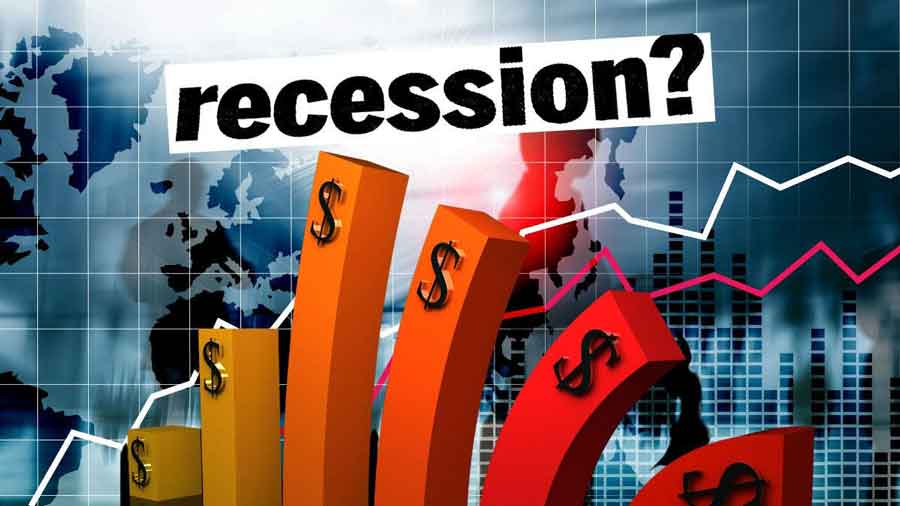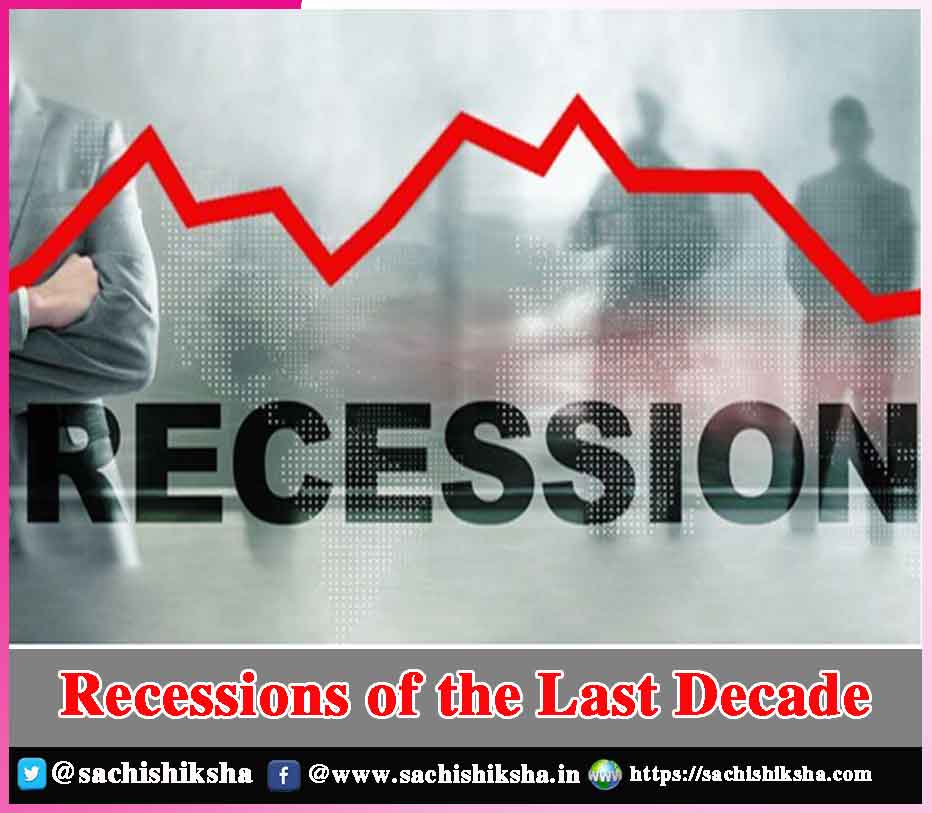Recessions of the Last Decade
Introduction: The phenomenon that involves economic slowdown and an eventual retarded growth in the economy is called recession. It is generally identified with the fall in GDP for two consecutive quarters.
This term has been quite discussed especially during the pandemic. Just when the world was preparing itself to come out of recession, another issue arose, which is lingering till date. It not only has a lot of geopolitical implications and is capable of changing the global world order but has also led to economic recession. Yes, I am talking about the Ukraine-Russia war.
Also Read:
- How to Deal With Recession
- History of Kohinoor Diamond – Everything You Should Know
- Keeladi | The Oldest Civilization Actually from India
- GREATNESS OF QUEEN AHILYABAI
- Unemployment
- Inventions of the Century
Table of Contents
Causes & Effects of Recession:

National Recession:
Recession can be both National and global. National recession is the economic slowdown in a particular nation itself. It leads to less job creation, less industrial output and all in all very low growth. Other than that it leads to many more issues that affect the economy negatively.
Global Recession:
Global recession is beyond the national boundaries. It affects the whole world. The impacts and ripples in one country are experienced by other countries. This is because of diminishing world boundaries as a result of globalization and the world becoming smaller and coming closer. This happens as a result of supply chain disruption, bottlenecks in the flow of goods and services, trade disruption of essential commodities and much more.
The Recession of 2009:
The deregulation of the Financial Market led to the recession of 2008. The 2009 global recession, set off by the global financial crisis, is by far the deepest and the most synchronized of the four recessions in 1975, 1984, 1991 and then 2009. In this recession the annual real per capita global output contracted, accompanied by weakening of other key indicators of global economic activity.
EMDE:
The Emerging markets and developing economies(EMDEs) navigated the 2009 global recession relatively well, even though the impact of the recession varied. EMDEs had stronger pre crisis fundamentals and prevailing conditions—such as large foreign exchange reserves, sound fiscal positions, and low inflation so they suffered milder growth slowdowns because of their greater capacity to engage in monetary and fiscal stimulus. Low-income countries were also resilient and stayed at a relatively much better position because foreign aid and inflows of remittances remained relatively stable.
COVID-19 Recession:
The recession due to Covid-19 pandemic has led to plunged growth and it is also one of the worst recessions in history. This is because of the fluctuation of domestic demand and supply, trade has been disrupted. The countries dependent on other countries for trade, commodities and finances are the hardest hit. The pandemic took the heaviest toll on health and economy especially in the poorest countries. The pandemic made us aware of the bottlenecks in the development of the country in terms of health and infrastructure. It highlights the urgent need for health and economic policy action, including global cooperation, protecting vulnerable populations, and strengthening countries’ capacities to prevent and deal with similar recessions in the future.
Geopolitical Tension:
Just as the effects of the pandemic were receding, the world again was grappled with the geopolitical tensions induced by the Russia Ukraine war sliding the world back in a difficult situation. The Global Energy Crisis, supply chain disruption and inflation has led to a global recession and even the most developed countries are facing hardships and crises currently. The OECD warned that further disruptions to energy supplies would hit growth and boost inflation, especially in Europe. World growth has lost its momentum because of the conflict between the two countries.
Macroeconomic Framework:
The experience of the 2009 global recession teaches the importance of not only the need for well-timed and well structured domestic stabilization policies but also the benefits of international cooperation and good relations with countries in support of strong and sustained global growth and financial stability. Sound macroeconomic framework and macroeconomic prudence creates room for stabilization policies, to safeguard fiscal sustainability and capital flow management measures to better manage systemic risks.
Thus, the critical importance of an effective system of regulation and supervision, including well studied and researched macro prudential tools, to take care of systemic financial stability risks. This shows the importance of domestic strengthening of macroeconomic framework so as to contain any harm originating from other countries. Risks arise due to subdued growth outlook, heightened global policy uncertainty, trade disruption and disordered financial market developments, geopolitical tensions, armed conflict, and severe weather events and climatic change.
Nations should focus on improving the environment , climate and atmosphere for better financial conditions and formulate policies and form tools that help in mitigating structural risks. Other than that the government should invest in human capital and infrastructure. Productivity driven growth must be encouraged.
Conclusion: Recession should be mitigated and robust steps must be taken immediately by the government. Even though these steps are short term as compared to the long term steps mentioned above in the article, these steps can still prove to be helpful. The fiscal policy must be streamlined as per prevailing conditions and various stakeholders should be brought on the table to discuss key issues and render advice as to what should be done.













































